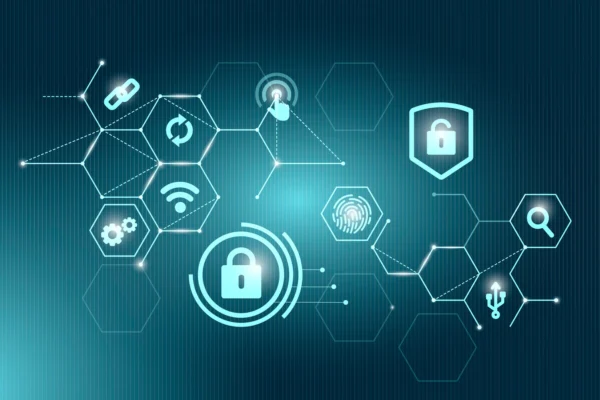Internet privacy and security refer to the measures taken to protect personal information and data online. With the increasing amount of personal information shared and stored online, the ethics of internet privacy and security have become a crucial and widely debated topic. The following is an overview of the key ethical considerations related to internet privacy and security:
The right to privacy
The right to internet privacy and security is a fundamental human right recognized by many countries. However, in the digital age, individuals often sacrifice their privacy in exchange for the convenience and benefits of using online services. This raises ethical questions about the balance between privacy and convenience
Data ownership and control
When individuals share personal information online, they often lose control over how that information is collected, used, and shared by companies and organizations. This raises ethical questions about who owns and controls personal information in the digital age.
Data breaches and cyber attacks
Data breaches and cyber attacks are becoming more common and can lead to the loss of personal information. These incidents raise ethical questions about the responsibilities of companies and organizations to protect personal information and the consequences of failure to do so.
Government surveillance
Governments around the world are increasingly using technology to monitor citizens. This raises ethical questions about the limits of government surveillance and the protection of citizens’ internet privacy and security.
Online identity
The internet has made it easy to create and maintain multiple identities. This raises ethical questions about the authenticity of online identities and the potential for deception and manipulation.
Manipulation and disinformation
Social media and other online platforms are being used to spread disinformation and manipulate public opinion. This raises ethical questions about the internet privacy and security of technology companies to combat these practices and protect users from misinformation.
Ethical implications for AI/ML
Advancements in AI/ML are driving decision-making, data analysis, and personalization, which are dependent on personal data. This raises ethical questions about the use of personal information and the development of AI/ML technologies that may perpetuate bias and discrimination.
Children’s Privacy
The internet has made it easy for children to access and share personal information. This raises ethical questions about the protection of children’s privacy and the responsibilities of parents and technology companies that neglect internet privacy and security.
Transparency and trust
Companies and organizations collect and use personal information without always being transparent about how that information is collected, used, and shared. This can erode trust between individuals and technology companies.
Cybercrime and criminal activity
With the increasing amount of personal information and sensitive data online, the internet is being used for criminal activities such as cyberstalking, identity theft, and fraud. This raises internet privacy and security questions about the role of technology companies and law enforcement in preventing and combating these activities.

The 5 big Questions:
- Why is it used? or why is it an important issue?
- Who uses it? or who is affected by it?
- How is it used? or how does it work?
- What is needed to use it? or what does it do?
- What else is important about this technology tool or topic?
Why is it used? or why is it an important issue?
The importance of internet privacy and security, and ethics cannot be overstated as they are an integral part of every online activity. The growing instances of hacking, cyberbullying, and identity theft, highlight the need for guidance for both students and teachers. However, these issues are not always black and white.
For example, is hacking always unethical, or are there certain scenarios where companies and advertisers collecting data from customers online may be acceptable without violating their privacy? These nuances make it important to examine and deliberate on the limits of security, privacy, and ethics.
Who uses it? or who is affected by it?
Internet privacy and security, and ethics are concerns that impact anyone who uses the internet, whether it’s through a closed network like a school network or a standalone computer.
These topics are relevant to all internet users and affect the way they interact online. Each person may have their own personal moral code, but Internet ethics can be understood as a collective set of principles that guide user behavior.
How is it used? or how does it work?
Protecting internet privacy and security, maintaining ethical standards, and ensuring security involve a multifaceted approach comprising user education, the use of appropriate technology, and adherence to established policies and procedures. All parties involved have a shared responsibility in safeguarding users, information, and systems from potential threats.
What is needed to use it? or what does it do?
It is crucial that organizations, at all levels, prioritize internet privacy and security and make every effort to safeguard students, teachers, faculty, and administrators. Administrators have to take a proactive approach by conducting proper research and investing in technical support and appropriate tools to secure the network. However, the most critical aspect is to ensure that faculty and students are educated on their role as the primary defense for security and privacy maintenance.
What else is important about this technology tool or topic?
- Privacy holds importance for many individuals, but not for everyone.
- Research has shown that the majority of Americans are willing to share their information in exchange for something of value.
- Each person has a different perspective on what privacy means.
- Privacy can be divided into different areas, such as anonymity, confidentiality and security.
- There are various ways in which privacy can be violated, from causing embarrassment to causing personal loss or even theft.

conclusion
These are just some of the many ethical considerations related to internet privacy and security. It is important for individuals, companies, and governments to consider these issues and work together to protect personal information and data online.
If you want to learn about Freelance Platforms where you can offer your services. You must need to know freelancing


